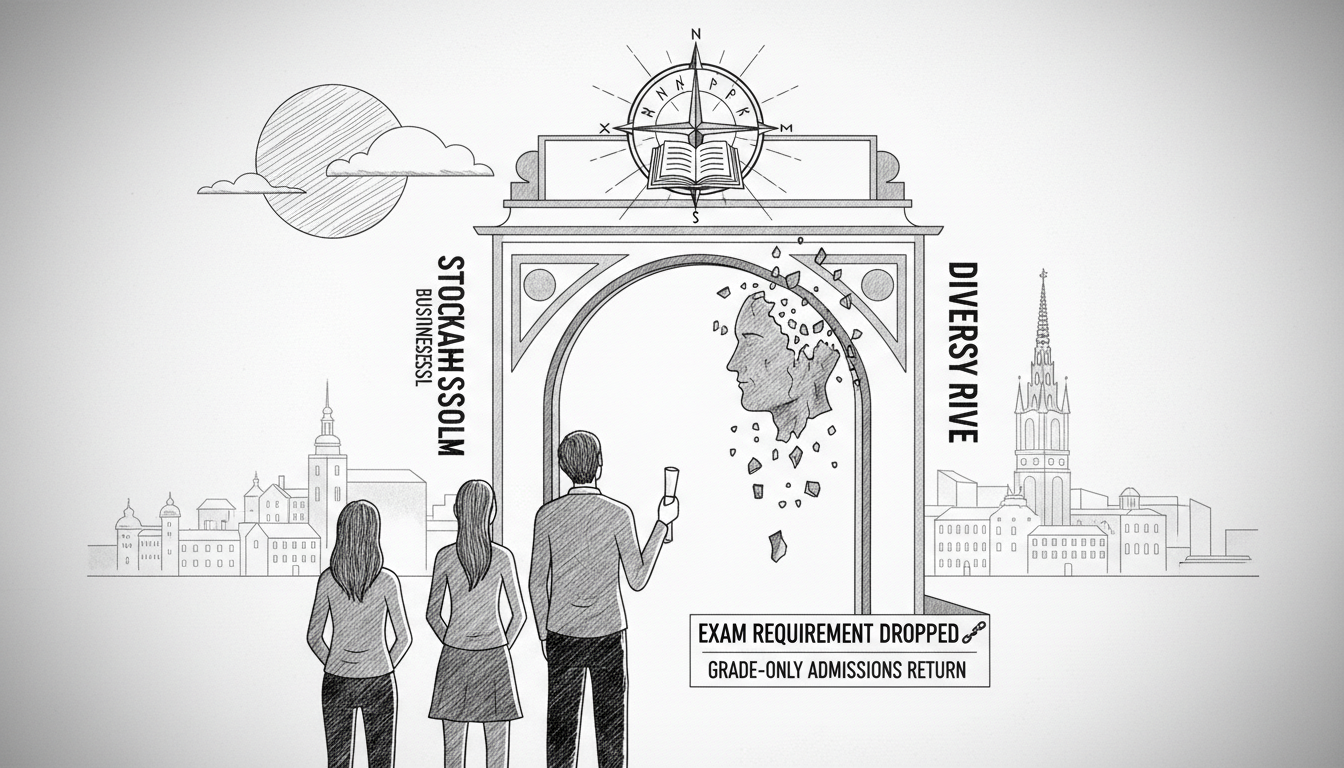Stockholm School of Economics will eliminate its supplementary exam requirement for undergraduate programs. The prestigious institution previously demanded both top high school grades and minimum scores on Sweden's standardized university entrance exam. School president Lars Strannegård explained the original reasoning. He said they wanted to verify grades due to concerns about grade inflation at certain high schools.
The policy change follows a stark diversity decline revealed in recent admissions data. Female representation among accepted students dropped from 39% to 29% after implementing the dual requirements. Total qualified applicants fell dramatically from 2,231 to 1,249 individuals. Male admissions increased from 61% to 71% of the student body during the same period.
Sweden's higher education council identified the exam requirement as creating negative diversity impacts. The school now conducts a comprehensive review of its entire admissions model. Starting next academic year, only high school grades will determine undergraduate program eligibility. The Business and Economics and Retail Management programs will both follow this revised approach.
Strannegård confirmed the institution's long-term planning for additional admissions reforms. He stated they would draw inspiration from leading international business schools worldwide. The school will also examine admission processes used in their master's degree programs. This suggests potential future changes beyond the immediate exam requirement removal.
Swedish universities face ongoing challenges balancing academic standards with equitable access. The Stockholm business district institutions particularly struggle with diversity metrics. Many Nordic innovation hubs confront similar tensions between meritocracy and inclusion. Stockholm School of Economics maintains its position as Sweden's premier business education provider.
The admissions policy reversal reflects broader Nordic debates about educational access. Swedish venture capital firms often recruit directly from the school's top programs. Diversity in business education directly impacts future startup founder representation. The school's location in Stockholm's Östermalm district places it at the heart of Sweden's business community.
International students considering Swedish startups should monitor these admission changes. The revised requirements may create new opportunities for applicants without standardized test access. Business education reforms often precede shifts in corporate hiring practices across Nordic markets. Stockholm's position as a Nordic fintech news leader makes business education changes particularly noteworthy.
What does this mean for Sweden's business education landscape? The school clearly recognizes that diversity matters for producing well-rounded business leaders. Their willingness to reverse course demonstrates institutional adaptability. Other Nordic business schools will likely observe these changes closely. Many face similar challenges in maintaining both excellence and inclusion in their admissions processes.

